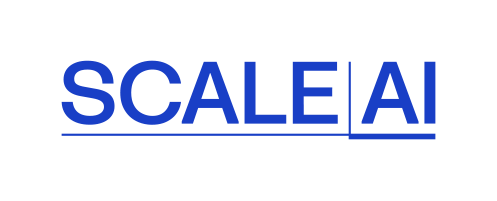When is a great name a bad trademark?
A few weeks ago, we saw the trouble caused when Anthony took company documents with him when he left his job at Waymo to launch a self-driving vehicle startup. But there’s also another interesting IP angle to his story:
Anthony wanted just the right name for his new startup. After much thought, he and his co-founders settled on the name OTTOMOTTO. It seemed like a pretty cool name.
Unbeknownst to Anthony, about a year earlier a Canadian SME, Clearpath Robotics, had started a self-driving vehicle division under the name OTTO MOTORS. Big clients were beginning to clamour for their OTTO industrial indoor self-driving vehicles.
But after OTTOMOTTO was acquired by Uber and its notoriety grew, Clearpath Robotics began receiving calls from customers and the media. They were confused by the similar names, and thought OTTO MOTORS and OTTOMOTTO were the same company.
Fortunately for Clearpath, they had done more than just adopt the OTTO name. They had also protected it by filing for trademark protection in Canada, and also in the US and other countries where they did business. Clearpath understood that just picking a good name isn’t enough to protect its very important IP asset – its brand name.
Clearpath’s registered trademarks provided the legal tools they needed to convince Uber to drop the OTTOMOTTO name. But if Clearpath hadn’t acted quickly to register its trademark, things might not have ended as well for them.
So far, we’ve explored IP rights that protect your business’s technical IP. Now, it’s time to talk about your brand.
Your brand is your name, your logo, your identity. It’s how customers know you. It is everything. It’s easily your most important IP asset.
Trademarks may seem less interesting than other IP rights, like patents or trade secrets. But, while some businesses have patents, every business has a brand that needs trademark protection.
Meet the trademark.
Trademarks can be a word, like SLACKBOT, or they can be designs or logos, like S DESIGN, combinations of the two, or even more innovative brand identifiers are possible, such as a sound, a moving image, or a hologram.
Registration of a trademark is optional – but you should consider it essential. That’s because registration gives you far stronger rights to prevent others from using similar marks.
IP Myth: Registering a business or corporation name protects it from competitors.
IP Fact: Only registering for trademark protection can protect your trademark against others using it. Registering your business or corporation name does not do that.
Registering a trademark involves filing an application with the trademark office in each country where you want protection. The trademarks office will examine the application to ensure it meets legal requirements.
To get the strongest possible protection, use a registered trademark agent to assist you, instead of trying to do it yourself. This is your brand we’re talking about. Not a good place to cut corners. This is an investment in your future success.
A good name might not be a good trademark.
Founders expend enormous effort choosing just the right name – but is it a good trademark?
Trademarks are intended to protect against unfair confusion in the marketplace. Unfair confusion occurs when customers or the public incorrectly associate a trademark with the wrong business [trademark confusion].
At its heart, this means that a good trademark is one that customers will recognize as coming from your business, and only your business [distinctiveness].
Think about it from a customer’s point of view: when you buy your favourite brand of shoes or sunglasses, you want to be able to trust you’re getting what you expected.
This has two implications for choosing a name that will also be a good trademark:
Unique.
Trademark confusion is usually caused by similarity. So before adopting a name, you must ask yourself – is anyone already using a similar name in a relevant market segment? Search the web, yes, but also the trademark register in Canada, the US and any other countries of interest.
Don’t just look for exact matches, but also what is similar – maybe spelled differently or other variations.
But don’t just think about how the name looks. How it sounds can matter. Although XOOM and ZOOM look different, they probably sound similar when spoken. That could be a problem.
Not descriptive.
Contrary to what you might think, the more a trademark describes your product or services, the weaker it is as a trademark. That’s because all of your competitors will also want to describe their products or services, and the law won’t stop them from doing so.
So, less descriptive is actually better. Much better.
For this reason, made-up names like GOOGLE or LULULEMON can make extremely strong trademarks. That’s because competitors have no good reason to ever use a word like that.
Mark your marks.
For strong protection, you want to signal customers and competitors that it’s your trademark. That’s why it’s prudent to mark – or “bug” – your trademark, with a “TM” after unregistered trademarks and an “®” after registered trademarks [trademark marking].
Takeaways.
- Your brand name is your most valuable IP.
- Registered trademark protection is essential for your business or product name.
- Make sure your name is also a good trademark – unique and not descriptive.
*Todd is Chief IP Officer at Scale AI, and a lawyer, patent agent and IP strategist with 25 years’ experience helping startups, SMEs and multinationals protect and commercialize their IP.
Please Note: Concepts discussed here have been simplified to facilitate learning. You should consult a qualified IP lawyer or agent to discuss your unique IP needs. Protecting your IP should not be a do-it-yourself project.
Scale AI is Canada’s AI Supercluster, investing in AI supply chain projects, acceleration and talent development across Canada. Visit us at www.scaleai.ca to see how we can help your business grow.

